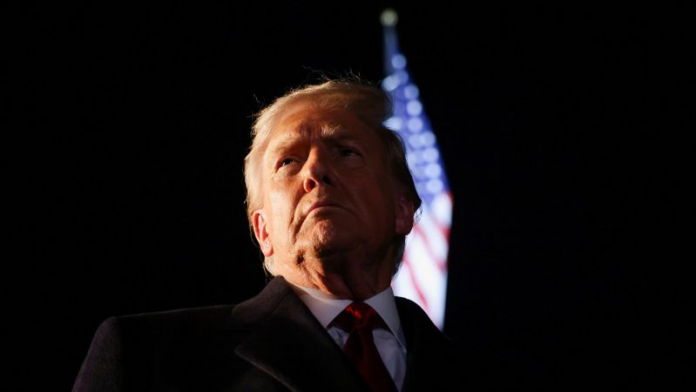On the second leg of his Asia tour, US President Donald Trump met with Japan’s conservative prime minister, Sanae Takaichi, who was elected only days ago.
Takaichi heralded a “new golden age” for Japan and the US alliance. Trump told Takaichi she will be “will be one of the great prime ministers” and the US is “an ally at the strongest level.”
Takaichi is a protege of assassinated former leader Shinzo Abe, who Trump has described as “one of my best friends – one of, maybe, my closest friends in government.” He told the new prime minister, “Shinzo was a great man – he loved you.”
Trump will soon visit US troops stationed in Japan, and then heads to South Korea on Wednesday. Whether Trump will meet North Korean leader Kim Jong Un on the trip remains a mystery, though the American leader said he was open to extending his trip to do so.
Here are some of highlights:
The leaders signed an agreement on securing the supply of critical minerals and rare earths they deem “crucial to the domestic industries of the United States and Japan.” China has a near-monopoly on global rare-earth supplies, which Beijing has weaponized in its trade war with the US. Washington has been trying to cut deals with other nations to break the stranglehold on supply.
The leaders were served lunch during their meeting, dining on American beef and rice. Serving American rice could be seen as a gesture to win favor with Trump, who has long urged Japan to buy more US rice. He even threatened higher tariffs on Japanese exports, accusing the country of refusing to purchase American-grown rice.
Takaichi told Trump that she had nominated him for the Nobel Peace Prize. The move has become a common tactic to flatter Trump, particularly when trade deals are on the table.
Takaichi gifted Trump a putter owned by assassinated Prime Minister Shinzo Abe and a golf bag signed by golfing star Hideki Matsuyama. The two leaders shared a love of golf and played nine holes alongside Matsuyama during Trump’s maiden diplomatic visit to Asia in 2017.
In a nod to the US’ 250th anniversary next year, Takaichi said Japan would donate 250 cherry blossom trees to Washington, DC. In 1909, Tokyo donated 2,000 cherry trees to the US, which were later destroyed after it was discovered they were infected with insects. A second donation of 3,020 cherry trees was made in 1912, some of which remain.
The leaders met with the families of Japanese citizens who were abducted by North Korea in the late 1970s and 1980s. Trump also met with the families in 2019. Japan says at least 17 of its citizens were snatched by North Korean agents – alongside hundreds of unexplained cases. The abductions appear to have been part of North Korea’s espionage program.



